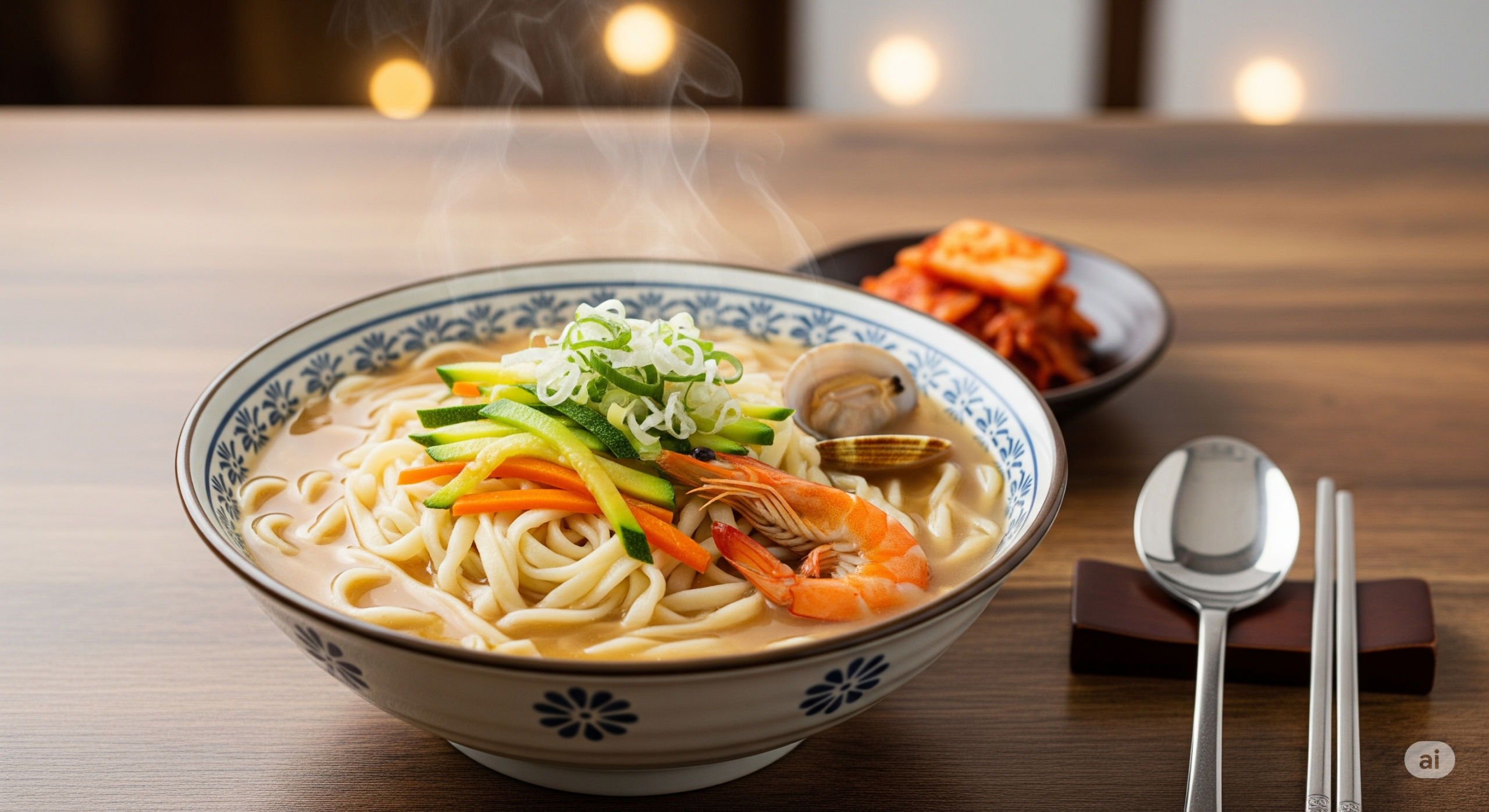1. Kal-guksu: The Pitfall in the Broth
Kal-guksu is a warm noodle dish enjoyed by many. However, it is a food that requires caution for people with diabetes in several respects.
2. The Effect of the Broth on Blood Sugar
– Dissolved Starch: During the process of boiling the noodles, the wheat flour starch from the surface of the noodles dissolves into the broth, making it thick. This broth is essentially ‘flour water.’ Therefore, if you drink all the broth, you end up consuming a much larger amount of carbohydrates than is visible in the noodles alone.
– Fast Absorption: Carbohydrates dissolved in liquid can be absorbed much more quickly by our body than solid noodles, leading to a sharp rise in blood sugar.
– High Sodium: Furthermore, the broth contains a large amount of salt for flavor, making its sodium content very high. This is not good for people with diabetes, for whom blood pressure management is also important.
3. The Problem with the Noodles Themselves
Kal-guksu noodles are made from refined white wheat flour, which has a high glycemic index. Therefore, the noodles themselves are a primary cause of a rapid rise in blood sugar.
4. How Should It Be Eaten?
If you must eat noodles, it is better to choose something like whole wheat pasta, which has a lower glycemic index, over kal-guksu. If you do eat kal-guksu, you should ask for half the amount of noodles and, crucially, do not drink the broth—eat only the solid ingredients. Adding rice to the leftover soup is the worst choice.
Summary: The broth of kal-guksu contains dissolved starch from the noodles. Drinking the broth leads to a much higher carbohydrate intake than eating the noodles alone. When eating kal-guksu, leaving the broth is very important for blood sugar management.


Leave a Reply